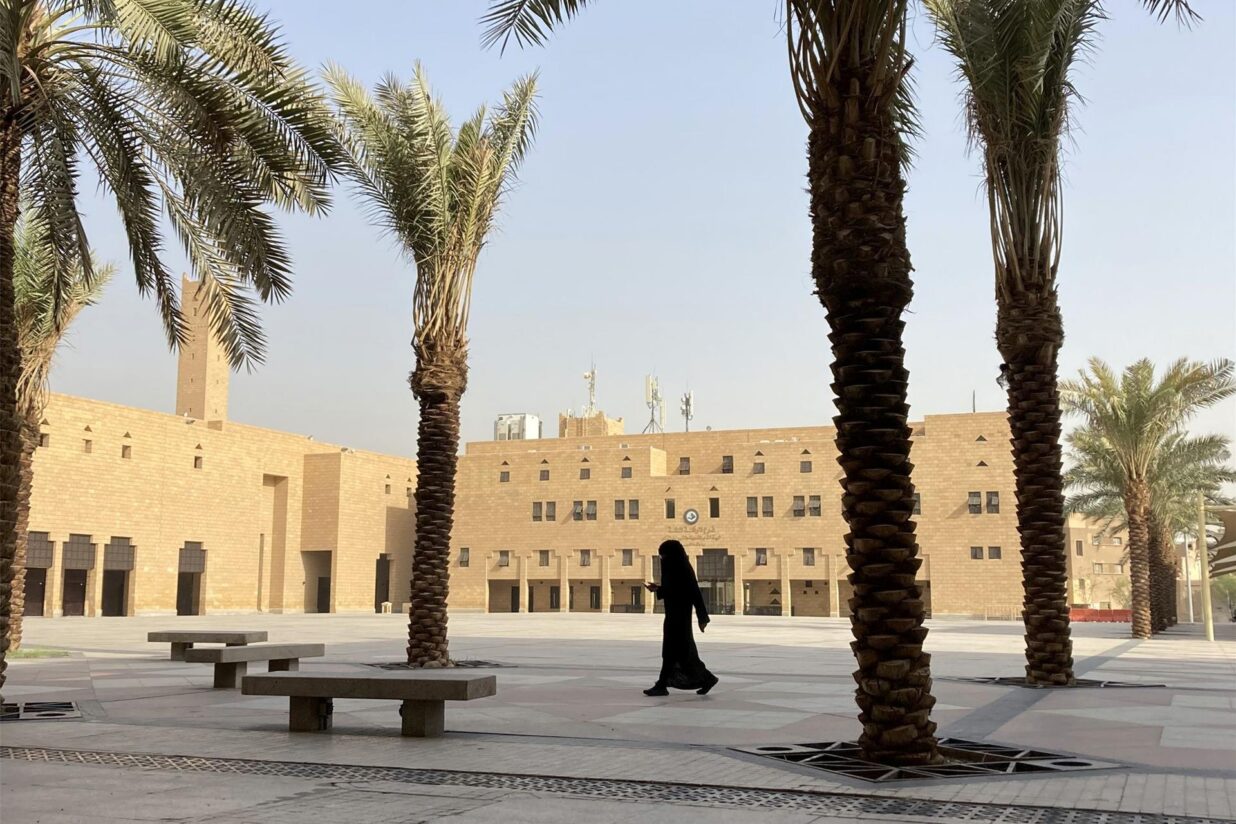
Lesezeit

Lesezeit
Verfasst von:
dpa
In Saudi-Arabien steigt die Zahl der Hinrichtungen der Menschenrechtsorganisation Amnesty International zufolge auf „erschreckende Weise“ an. Unter den Hingerichteten der vergangenen Jahre seien viele ausländische Staatsbürger, die wegen Drogendelikten verurteilt wurden, heißt es in einem heute veröffentlichten Bericht der Organisation. Darunter waren vor allem Menschen aus Pakistan, Syrien, Jordanien, dem Jemen sowie Ägypten und Somalia.
„Wir erleben einen wahrhaft entsetzlichen Trend, in dem ausländische Staatsbürger in erschreckendem Tempo hingerichtet werden für Verbrechen, für die niemals die Todesstrafe vorgesehen sein sollte“, sagte Kristine Beckerle, die bei Amnesty für die Region zuständig ist. Hinter dem „progressiven Image“, das das Land weltweit ausstrahlen wolle, stehe eine „düstere und tödliche Realität“.
In Saudi-Arabien wurden von 2014 bis Mitte des laufenden Jahres etwa 1.800 Menschen hingerichtet. Fast jeder Dritte davon sei wegen Drogendelikten verurteilt worden, erklärte Amnesty heute. Innerhalb dieser Gruppe seien drei Viertel der Verurteilten Staatsangehörige anderer Länder. Allein im Juni dieses Jahres wurden 46 Menschen hingerichtet – 37 davon wegen Drogendelikten.
Auch unabhängig von Drogendelikten kommt die Todesstrafe weiter zum Einsatz. Hingerichtet wurde dieses Jahr etwa auch der Journalist Turki al-Jassir, der nach Angaben der Menschenrechtsorganisation ALQST 2018 festgenommen wurde. Al-Jassir hatte sich mit Themen wie Frauenrechten und Korruption befasst. ALQST zufolge wurden ihm unter anderem „Terrorismus“ und die Gefährdung der nationalen Sicherheit vorgeworfen.
Vergangenes Jahr gab es in Saudi-Arabien 345 Hinrichtungen und damit laut Amnesty so viele wie seit mehr als drei Jahrzehnten nicht. Die Regierung hatte zuvor angekündigt, die Todesstrafe in einigen Fällen nicht mehr einzusetzen. Wegen der Praxis steht das Land international in der Kritik trotz der Bemühungen, sich etwa für Touristen und Investitionen mehr zu öffnen. 2034 wird in Saudi-Arabien die Fußball-WM ausgerichtet.
Zur Startseite


Lesezeit

Fri 20th Dec, 2024
On December 20, 1999, Portugal officially relinquished control of Macau, a former colony that had been under its governance for more than 400 years. This transition marked a significant shift in the region’s political and economic landscape, transforming Macau into a prominent gambling hub often referred to as the ‘Las Vegas of Asia.’
Unlike Hong Kong, which experienced significant political unrest following its handover to China, Macau has largely maintained political stability. The region, which is significantly smaller in both area and population compared to its neighbor, has become an appealing destination for tourists, primarily due to its extensive gaming industry.
Macau is characterized by its Cotai Strip, a bustling boulevard akin to Las Vegas, where visitors find a plethora of casinos, luxury hotels, and shopping centers. Numerous major companies have established themselves in Macau, drawing inspiration from the iconic resorts of Nevada. This strategic positioning has solidified Macau’s reputation as a leading entertainment destination in Asia.
Historically, Macau’s connection to China deepened long before the 1999 handover. The influence of Chinese culture and politics has been significant, particularly during the Cultural Revolution, which began in 1966. By the time of the handover, the governance of Macau had already shifted largely towards Chinese influence, leading to a unique political landscape that has not seen the same level of protest as Hong Kong.
In the years following the handover, Macau’s economy has thrived, especially after the liberalization of its gaming industry. The introduction of competitive gaming licenses attracted international operators, particularly from the United States, who have significantly contributed to the local economy. As a result, Macau’s GDP has seen remarkable growth, reaching approximately $70,000 per capita by 2023, which surpasses that of Hong Kong and mainland China.
Despite its economic success, the dependency on tourism and gambling raises concerns about sustainability. The local government has recognized this challenge and has been distributing a portion of its budget surplus to residents, ensuring that the population benefits from the economic boom.
Macau’s cultural identity remains complex, with nearly half of its residents originating from mainland China. This demographic composition has influenced local sentiment towards governance and the broader relationship with China. As political changes continue to unfold in the region, Macau has been praised as a model for the ‘One Country, Two Systems’ principle, illustrating a different trajectory from Hong Kong.
As the 25th anniversary of the handover approaches, the question of Macau’s future remains pertinent. While the region continues to flourish as a gambling and entertainment hub, the potential for greater integration with mainland China looms, prompting discussions about the long-term implications for its autonomous status and cultural identity.
In conclusion, Macau’s evolution from a colonial outpost to a vibrant economic center reflects broader trends in regional politics and economics. As it celebrates a quarter-century since its return to Chinese sovereignty, Macau stands as a testament to the complexities of post-colonial governance in the context of a rapidly changing global landscape.

With statutory health insurance contributions set to increase in January 2026, we look at how the proposed increases could affect your wallet – and what steps you can take to keep the financial impact to a minimum.


Legal Initiatives Intensify Around Abortion Pill Access


Allergie- & Immunologietage | Düsseldorf Congress


30 Tage Bikini Workout | Women’s Best Blog


8 Übungen gegen Cellulite | Women’s Best Blog


Cellulite loswerden? Das hilft! | Women’s Best Blog


BRUIT≤ – The Age of Ephemerality


Me Made Mittwoch mit neuen Regeln am 02. Juli 2025


In diesem Blogartikel findest du eine hilfreiche ➤ CHECKLISTE mit ✔ 5 TIPPS, um deine ✔ Zeit besser einzuteilen & deine ✔ Fitness-Ziele zu erreichen! ➤ Jetzt lesen!